“Attitude is Everything” is written by motivational speaker and coach Jeff Keller. The road to a happier, more successful life starts with your attitude and when the attitude is under your control.
In this book, Jeff Keller shows us how to take control and unleash our hidden potential through three decisive steps think, speak and act.
Jeff says he has personally applied every success strategy described in this book, and these concepts can literally transform your life.
This book will help all, no matter how positive or negative you are right now. If you are negative, you can use these concepts to develop and maintain a positive attitude and achieve incredible breakthroughs in life.
And if you are already a positive person, you can use these principles to soar to greater heights of success and fulfilment.
You will be energized and see new possibilities. As a result, your relationship will improve at work and in your personal life. To change your attitude and your life by learning the step-by-step program.
CHAPTER 1: Success begins in the mind
William James said Human beings could alter their lives by changing their attitudes of mind. Author Jeff Keller was a professional lawyer but later became a motivational speaker.
It was a tough time for him, but he learned much during this period. He says you will deal with issues when you take a stand in life. It would help if you faced the fact that some people would disapprove of your decision.
But often, you should let go of some things in your life and step backwards before moving forward in a new direction.
Jeff paid the price of giving up the money, prestige, and security of his legal career because he was practising law for ten years. He says walking away from so much investment in a job was difficult. Still, he always follows the quote of Jackson Brown Jr. – Never underestimate your power to change yourself. And also, a positive attitude is a passport to a better tomorrow.
Our attitude is our window to the world. We must keep ourselves clean and bright because we are the window through which we see the world. William shares an example of two persons, Sara and Sam, who walked down to a coffee shop on their lunch break.
Both ordered food, and the same waitress served both on two different tables. Each received the meal around the same time, and each was well-prepared food.
Still, there were so many differences between them. Sara had walked into a coffee shop with a smile and a positive outlook. Her body language and her posture reflected her optimism. Sara had a delightful lunch, exchanged pleasant conversations with the waitress, and returned to work with a recharged battery.
Sam, on the other hand, entered the coffee shop with a scowl on his face. He looked like he had been sucking sour pickles all morning. His body language cried out to stay away. He was annoyed when the waitress didn’t take his order immediately.
He was annoyed at how long it took for his meal to arrive. He complained about the food.
Sara and Sam had different experiences in the coffee shop. Each was treated the same way, but Sara sees the world with a positive attitude, and Sam sees the world with a negative attitude.
Few differences between the attitude of positive and negative:-
Our attitude is our window to see the world because we all started life with a good attitude and clear mental window.
Children are always laughing and giggling. They love to explore new things. When a child falls while learning to walk, he smiles, gets up again, and makes another attempt. He keeps going for weeks and months until he gets it right. His window is squeaky and clean, and he feels he can conquer the world.
But when life starts throwing some dirt at our windows, our windows get splattered by criticism by parents and teachers, get smudged by peers, get smeared by rejection, get spoiled by disappointments, get clouded by doubts.
We can learn how to clean off the window. We need to improve our attitude to see the world again. After we remove the grime from our window, a new world opens up.
The frustration and depression lifted. We will have more confidence. It is our job to keep our windows clean. People can encourage us, but in the end, nobody can do it for us.
We always have a choice. We can leave the filth on the window and look at life through smeared glass, or we can clean the window and see the brighter and sunnier life.
Hugh Downs said – “A happy person is not a person in a particular set of circumstances but with a certain set of attitudes.”
To maximize our potential and achieve our goals, we need to apply certain time-honoured principles of success that have helped millions of people to achieve extraordinary results.
Still, we can’t activate the other principles without a positive attitude. Success in our life starts with our attitude and ends because of attitude. We become unstoppable when we combine a positive attitude with other success principles.
Earl Nightingale, the great, successful writer, broadcaster, and speaker, identified success in just six words. We become what we think, that is, what we think we become. Here is how it works. If we constantly think about a particular goal, we will take steps to move toward that goal.
For example, Fred thinks he can earn $30,000 per year. Like a human magnet, Fred will attract those employment opportunities that will move him in that direction. As a result, he will reach his goal of earning $30,000 per year.
Now, if Fred begins to think, I would like to earn more money to meet the growing needs of my family. I want to earn $50,000. Will Fred’s income increase? It depends upon how strong Fred’s belief that he can earn $50,000.
It is quite possible that Fred would like to earn $50,000, but he doesn’t believe he can. In that case, Fred will not reach his income Goal of $50,000. On the other hand, if he continually thinks and believes in his ability to achieve that goal, he will increase his income to $50,000.
The idea that we become what we think about has also been expressed as the law of Dominant thought. The key word here is DOMINANT. You can’t expect positive results when you spend 10 seconds a day thinking positively and the remaining 16 waking hours dwelling on adverse outcomes. A little positive thinking does not produce positive results.
Just like a little bit of a diet does not work. The same is true with exercise- you can’t do a few minutes of exercise once a week and expect to be physically fit.
Look at positive thinking the same way. A little bit does not get the job done. Instead, you must take control of your mental activity and think positively every day until it becomes a habit. We must remember that the law of dominance should dominate our positive thoughts.
Here the author shares his example- for six months, he focused on one thing-owning two investment homes. He wrote down his goals several times daily and referred to them often at the deepest level, that he would own two homes before the end of the year. He visited real estate agents in the evenings and on weekends to look at homes.
He visited about 100 homes and researched hundreds of others. Finally, in the fall of 1986, he purchased an investment property, and on December 29, just two days before New Year, he reached his goal and bought the second investment home. The author learned from this experience that we can achieve our goals when we believe in ourselves and focus our thoughts on the positive. If our thoughts don’t change, our results won’t change.
Things To Learn
1. Change Your Thinking
We can change our thinking for good results. Too often, what we say is negative, critical, and self-limiting. Perhaps we find our self-thinking-
I can’t do this, or “I always mess things up.” These thoughts work against us. So instead, we must repeat to ourselves – I can and will accomplish my goal.
Here are some more action steps to help us become more positive and get the desired results:-
Step 1 – Every day, read some positive, uplifting literature. Find 15-30 minutes in the morning to do this. And it is also a good idea to do some reading before bed.
Step 2 – Every day, listen to motivational audio programs. We can listen to them while commuting at home or during work hours. The key is repetition. When we hear these messages repeatedly, they become part of us. And we begin to implement them to improve our life. But yes, audio programs are not a substitute for the action part.
2. Don’t count on overnight success
Positive thinking does not mean that you will achieve your goals overnight. It is not as if you start thinking about making more money, and the next morning you wake up and find a stack of dollar bills at your bedside. Success requires effort, commitment, and patience. Also, positive thinking does not mean you will not have any more problems. But if we continue to believe in ourselves, take action, and persist, we will overcome those obstacles. Everything we achieve in our life flows from our thoughts and beliefs.
3. Picture your way to success
We must first clearly see a thing in our mind before we can do it. For example, in an interview, the famous singer Celine Dion was asked if she had ever dreamed at the start of her career that someday she would sell millions of records and be on tour, singing in front of tens of thousands of people each week. The singer replied that none surprised her, as she had pictured the whole thing since she was five.
We have used visualization since childhood to create the circumstances of our own life. Visualization is often described as “movies of the mind,” “inner pictures,” or “images .” We all store pictures in our minds about the type of relationships we deserve, the degree of success we attain at work, the extent of our leadership ability, the amount of money we will earn and accumulate, and so on. Albert Einstein said, “Imagination is more important than knowledge.”
4. Create new pictures
We should form a picture in our mind in which we confidently give our presentation. The pictures in our minds are not fulfilled overnight. But by being patient and persistently focusing on those mental images, we will automatically start acting in ways that support our vision.
5. Write a check to you
There is one technique we can use to accelerate our success. We can create visual aids to move forward with what we want. In 1990, while he was still relatively unknown, comedian Jim Carrey wrote a check to himself for $10 million for “acting services rendered .” The check was post-dated on Thanksgiving 1995. As Carrey explained, it was not about money. He knew that if he made that much, he would work with the best people on the best material.
So in 1995, he started making $20 million per movie. The same technique can work for you too. You can write a check and post-date it three or five years from now with the amount you want to earn for services rendered. Look at that check at least once daily and believe you are moving toward that goal.
6. Lights, Camera, Action
If we do not control and develop our movies, you will continue replicating the old ones. If the old movies are serving you, that is great. But if they are holding you back in any way, get started today and use the incredible power of your mind to picture your way to greater success.
7. Make a commitment, and you will move mountains
Commitment is the essence of Ultimate Success. According to the author, the mantra to get what you want is the desire to do what you need to be successful. Whatever it takes does not mean illegal, unethical, or harms others. Willingness to do means mental attitude. For example, if it takes five steps to reach my goal, I will take those five steps; if it takes 55 steps to reach the goal, I will take those 55 steps; if It takes 155 steps to reach my goal, I will take those 155 steps.
8. Magic of Commitment
When you commit and are willing to do whatever it takes, you attract the people and circumstances necessary to accomplish your goal. Once we commit ourselves to something, we create a mental picture of what it would be like to achieve it. Then, your mind immediately goes to work, like a magnet, attracting events and circumstances to help bring your picture into reality.
9. Doors will open
When you are willing to do whatever it takes, the right steps are often suddenly revealed to you. You will meet people you could never have planned to meet. Doors will unexpectedly open for you. It might seem like a lock, or good fortune is smiling on you; in truth, you will have created these positive events by committing and, thus, instructing your mind to look for them. But, even with a commitment, everything won’t be rosy on your path. Life will test you to see how serious you are about achieving your objective.
10. Obstacles will arise
You will make mistakes and suffer disappointments and setbacks, some of which may be quite severe and even tempt you to abandon your goal. That is when it becomes important to flow the sage wisdom of Winston Churchill, who said, “Never, never, never give up .” Or the advice of James Corbett, “you become a champion by fighting one more round. When things are tough, you fight one more round. If you have committed to accomplishing a goal, you can overcome temporary defeats and triumphs. One person with a commitment is worth more than 100 people with only an interest.
11. Turn your problems into opportunities
We will probably face a period of uncertainty or struggle, but there is always a flip side to the difficulty. A problem is often not a problem at all. Instead, it may be an opportunity. For instance, a problem may point out an adjustment we can make to improve certain conditions in our life. Without the problem, we would never have taken this positive action.
12. Career change emerges from frustration
The author shares that his career transition is another example of how benefits come from problems and difficulties. He was never interested in self-development materials until he had years of unhappiness after graduating from law school.
He only found these principles after he had reached a low point in his life. He shares that if he had not been more and more dissatisfied with his work as an attorney, he would never have been open to switching careers. Bad roads always lead to beautiful destinations.
How adversity serves us:-
1. Adversity gives us perspective – Once you have recovered from a life-threatening illness, a flat tire or leaky roof no longer seems so troubling. You can rise above the petty annoyance of daily living and focus on the truly important things in your life.
2. Adversity teaches us to be grateful – Through problems and difficulties, especially those which involve loss or deprivation, you develop a deeper appreciation for many aspects of your life. You don’t usually appreciate something until it’s taken away from you. The wise person continues to dwell on blessings, even after the loss or deprivation has passed.
3. Adversity brings out our hidden potential – After surviving a difficult ordeal or overcoming an obstacle, you emerge emotionally stronger. This is because life has tested you, and you were equal to the task. Then, when the next hurdle appears, you are better equipped to handle it. Problems and challenges bring out the best within us. We discover abilities that we never knew were within us.
4. Adversity encourages us to make changes and take action – Most people cling to old, familiar patterns regardless of how boring or painful their lives have become. But, unfortunately, problems are often life’s way of letting you know that you are off course and need to take corrective action.
5. Adversity teaches us valuable lessons – take an example of a failed business venture. The entrepreneur may learn something that enables him or her to succeed in the next venture.
6. Adversity opens a new door – A relationship terminates, and you go on to a more satisfying relationship. You lose your job and find a better one. In these instances, a problem is not a problem but rather an opportunity in disguise. One door in your life has been shut, but a better one is waiting to be opened.
7. Adversity builds confidence and self-esteem – When you muster your courage and determination to overcome an obstacle, you feel competent and gain confidence. You have greater self-worth and carry these positive feelings into subsequent activities.
Watch your words
Your words blaze a trail- “The words you consistently select will shape your destiny”- Anthony Robbins. Our words have incredible power. They can build a bright future, destroy opportunity or help maintain the status quo. Our words reinforce our beliefs. And our beliefs create our reality. This is a process. THOUGHTS =WORDS=BELIEFS=ACTIONS=RESULTS.
For example, Tom thinks I am not very good at sales. He has run it through his mind regularly, hundreds and thousands of times in his life. Then, Tom starts to use words that support his thought. He says to his friends and colleagues. He repeats these phrases repeatedly in his self-talk and his discussions with others. Then, in turn, he strengthens his belief.
Tom develops the belief that he will not be successful in sales and won’t earn much money. Because Tom doesn’t believe in his sales ability, so he takes very little action, or he takes actions that are not productive, and then quite predictably, Tom gets very poor results.
Words are, of course, the most powerful drug used by mankind. We cannot expect to get positive out of negative words every day.
1. To tell or not to tell
Most of us keep wondering whether we should say positive words to ourselves or should we say these words to other people. The answer is that there are no hard and fast rules, and we should do what works best for us. To begin with, use positive self-talk as often as possible.
We don’t have to worry about others hearing our comments. The key is we hear this positive input again and again. And it becomes deeply rooted in our subconscious mind. Whether to share our goals with other people is a much trickier issue.
2. Never discuss your goals with negative people
They will do is argue and point out all the reasons why you won’t be successful. They have no dreams and goals of their own, and they don’t want anyone else to succeed, either. We can share our goals with someone who is extremely positive and totally supportive of our efforts.
This should be the person who would be absolutely delighted if you achieved this goal and would do anything in his power to assist you. Also, discuss your plans with people who are qualified to render an intelligent opinion on the subject. If you are going into your own business, it simply makes no sense to consult with your uncle, who does not know about owning a business. This kind of person will give you a list of reasons not to go into the business who worked for someone else all of his life. You will start to doubt yourself. You don’t need this kind of help.
3. Words and Emotions
We must choose words that will point us toward our goals. In his best-selling book “Awaken the Giant Within,” Anthony Robbins devotes an entire chapter to how our vocabulary affects our emotions, beliefs, and effectiveness in life.
Robin gives examples of how we can lower the intensity of negative emotions. Replace “I have been destroyed” with “I have been set back .” Use “I prefer” instead of “I hate .” Instead of “I am determined,” use “I am unstoppable .” Instead of saying “feel okay,” use “I feel phenomenal” or “I feel tremendous.”
Let’s examine the phrases we have been using in four key areas of life- Relationships, Finances, Career, and Health. In Relationships, stop repeating phrases like, “All the good men (or women) are taken,” or “People are always taking advantage of me .” If we choose these words, we attract only those who will disappoint us or take advantage of us. In finances, we must stop using “I am always in debt” and “The Economy is lousy .” The people with wealth did not get this way by moaning about being in poverty, and the people who always talk about lack of money generally don’t accumulate much of it.
Career-wise, you should not repeatedly say that “I don’t know where I am going in my career .” Your language reflects your lack of vision and direction. In the health field, our body responds to words it hears you and other people say, so it does not make any sense to keep repeating your health issues because by uttering these statements, you are instructing your body to manifest pain and disease.
How are you? – The responses to how are you can be classified into three categories.
1. Negative Replies “Lousy,” “Terrible,” “I am tired,” “It’s not my day,” “Don’t ask .” The people who use these responses are poisoning their attitude. And they turn off other people.
2. Mediocre Responses – “I am okay,” “Not too bad,” “Could be worse,” “same old, same old,” “Hangin in there,” “Fine .” People who use mediocre words will develop a mediocre attitude and get mediocre results.
3. Positive Responses– “Terrific,” “Fantastic,” “Great,” “Excellent,” “Super,” “I am on top of the world,” “It does not get any better .” People who use positive words have a bounce in their step, and you feel a little better just by being around them. When you use excellent or terrific, your physiology corresponds with your optimistic language. Your posture is upright. Other people are attracted to your energy and vitality.
4. What if I don’t feel terrific- Sometimes people say what if I don’t? I don’t want to lie to my friends and co-workers by telling them everything is wonderful when it is not. Assume for a moment when Sally is tired, and if someone asks her How it is, and she says, I am tired, she will reinforce the thought she is tired. She will feel even more fatigued and have a lousy and unproductive day at work.
Suppose she goes home exhausted and discovers she won $10 million. She would run to pick up a call and tell family and friends with full energy and would stay up all night celebrating and planning what to do with the money. But a few minutes ago, she was a tired and exhausted woman. What happened to her now? Her transformation is entirely mental. It is a matter of what Sally chooses to focus on.
She could concentrate on feeling tired; that was one option. On the other hand, she could have thought about the many blessings in her life and felt very fortunate and energized. When we tell ourselves that we are tired, we feel tired. When we tell ourselves we are terrific, we feel energized.
4. Stop Complaining
“Troubles, like babies, grow larger by nursing” – Lady Holland. We don’t feel uplifted and energized when someone unloads all his problems and complaints on us. Nobody likes to be around a complainer. Complaining is not about sharing life experiences with friends and family and what people can possibly do for us if we have physical problems.
We should go to the doctor, not friends and family. Talking about pain and discomfort will only bring you more of the same. Sometimes people waste so much time complaining about the weather. It simply makes no sense about things over which we have no control and have no significant impact on our lives.
Complaining is not the answer to our challenges in life. Complaints work against us in three ways- first, no one wants to hear negative news about your illness and problems. Second, complaining reinforces your pain, and third, it accomplishes nothing.
Heaven helps those who act
Nothing happens by itself. It all will come your way once you understand that you must make it come your way through your exertions. A person’s face can be seen in the mirror, but how that person is from the inside can be told by looking at his friend circle.
1. Confront your fears wisely
If we want to be successful, we should be willing to be uncomfortable. To achieve our goals and realize our potential, we should be willing to be uncomfortable – to do things we are afraid to do. That’s how we develop our potential.
As Marie Curie said, nothing in life is to be feared. It is only to be understood. Fear does not mean physical risks that might injure you or endanger your health. Here doing challenging things means those that stand in the way of your personal and professional growth. These are the things that scare you- but which you know are necessary if you will get what you want in life.
The most common FEARS which are identified are:
- Public Speaking or giving presentations,
- Hearing the word “NO” or having their ideas rejected,
- Changing Jobs or starting their own business,
- Telling managers or executives “Negative News,”
- Talking to people in upper management,
- Fear of Failure.
Hiding from our fears is not going to take us anywhere. As Miguel de Cervantes said, “He who loses wealth loses much; he who loses a friend loses more, but he who loses courage loses all. There is no magic wand to come out of this.
The simple solution is to confront uncomfortable situations without fear and anxiety, and we would be eternally grateful. Consider yourself an immediate winner when you take the step and do the thing you fear.
You are a winner by participating in the arena, regardless of the result. There is nothing wrong with having some fears. Successful people have fears. The difference is that successful people take action and move forward despite being afraid. It is not always easy. But you will feel great about yourself when you face your fears.
2. Get out there and Fail
Failure is only the opportunity to begin more intelligently again. In Winston Churchill’s words, “Success is going from failure to failure without loss of enthusiasm .” Successful people have learned to fail their way to success. While they may not enjoy their failures, they recognize them as a necessary part of success.
Becoming efficient at any skill requires time, effort, discipline, and willingness to persevere through difficulties. Jack Canfield and Mark Victor Hansen faced 33 rejections over a period of three years to get a publisher to say YES to publish their book. But the 34th Publisher said after 33 rejections are what launched the spectacular success of “Chicken Soup for the Soul”.
This book series sold over 100 million copies. All because these two writers were determined to fail over and over and keep going until they succeeded. Their attitude remained positive and this attitude was worth tens of millions of dollars. The only time success is impossible is when you quit.
Quitting is final, but continued attempts, with commitment and diligence, can be turned into success. Thomas Watson said, if you would like me to give you a formula for success, it is quite simple, double your failure rate.
3. Networking that gets results
You can get everything you want if you will just help enough other people get what they want. Networking is a way to leverage your own efforts and accelerate the pace at which you get results. After all, the more solid relationships you build, the greater your opportunities for success. We simply can’t succeed on a grand scale all by ourselves.
In the business area, networking has the following benefits:
- Generates new clients or business leads,
- Increases employment opportunities,
- Helps in finding the right people to fill critical positions,
- Provides valuable information and resources,
- Assist in solving problems.
In the personal realm, here is what networking does:
- Enhance your social relationships by introducing you to new friends,
- Help you to become acquainted with people of varying ethnic, cultural, and philosophical backgrounds, and
- Contribute to spiritual growth.
Attitude and Action
Attitude is everything when it comes to networking. Serving others is crucial to building and benefitting from your network. Call people from time to time just because you care. If business comes from these calls, that’s great. If the business does not come from these calls, that’s also great. Take advantage of everyday opportunities to meet people. Treat every person as important. Never forget to do follow-up; for instance, you attend a dinner and make a new contact.
Send a short note as soon as possible explaining how much you enjoyed meeting and talking with that person. Remember that networks are built over time and that significant results usually don’t appear immediately. So be patient. Great networking skills are not a substitute for being excellent in your field. By constantly learning and improving, your efforts will yield amazing results.
Conclusion
Keller’s writing style is engaging and easy to understand, making the book accessible to readers of all backgrounds. He effectively illustrates the importance of maintaining a positive attitude in adversity through personal anecdotes, real-life examples, and thought-provoking exercises. His emphasis on the power of thought and self-talk provides readers with practical tools to implement change in their own lives.
The book is organized into twelve chapters, each focusing on a specific aspect of attitude, such as taking responsibility, cultivating a positive mindset, and embracing change. One of the most compelling parts of the book is the “Three D’s” concept, which stands for Desire, Dedication, and Determination. This framework provides readers with a roadmap to success and illustrates the importance of perseverance in facing obstacles.
Keller also addresses common misconceptions about positive thinking, emphasizing that it is not about ignoring reality or denying problems. Instead, he encourages readers to acknowledge their circumstances and adopt a proactive approach to overcome challenges.
One minor criticism is that some of the content may feel repetitive, as the core message of the importance of a positive attitude is reiterated throughout the book. However, this repetition reinforces the central theme and ensures that the message resonates with readers.
In conclusion, “Attitude is Everything” by Jeff Keller is an insightful and inspiring read that provides valuable guidance on the power of a positive attitude. This book is a must-read for those looking to overcome challenges, achieve personal growth, and enhance their overall well-being. With its straightforward and accessible approach, it has the potential to change lives and inspire readers to take control of their destinies.
Attitude is Everything Book Review
One of the things I appreciated most about this book is that it is written in a relatable and easy-to-understand manner. Jeff Keller writes from his experiences and shares real-life examples that illustrate his points. This makes it easier for the reader to connect with the material and understand how they can apply the concepts to their own lives.
One of the key takeaways from this book is that your attitude directly impacts your life and that by shifting your mindset, you can transform your life. Jeff Keller provides practical strategies for developing a positive attitude and overcoming negative thoughts and beliefs. He also stresses the importance of taking action and persevering through difficult times.
I also appreciated the emphasis on personal responsibility in this book. Jeff Keller clarifies that we are in control of our lives and have the power to shape our experiences. He encourages readers to take ownership of their thoughts and emotions and control their lives by making changes from within.
In conclusion, Attitude is Everything by Jeff Keller is a powerful and inspiring book that will help you transform your life by changing the way you think. Whether you’re looking to improve your relationships, achieve success in your career, or simply find more happiness in life, this book is a valuable resource I highly recommend.
Contents


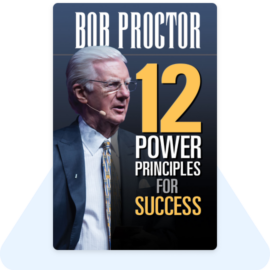
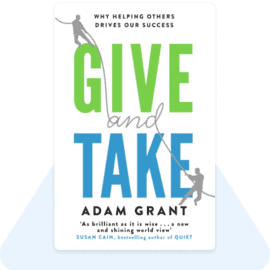
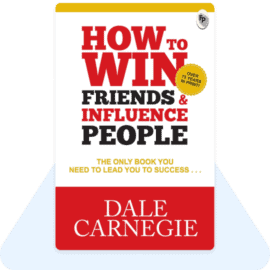
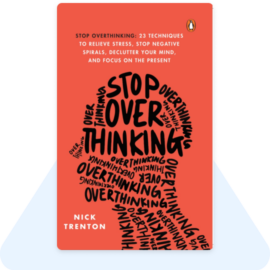
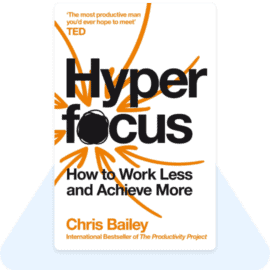

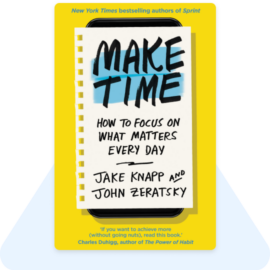





it looks like this summary is written by AI , I must appreciate good prompt you entered to get this
it’s not just a so called summary but a whole essence of book. loved it.
I love this book summary. I am feeling very Positive by reading this summary. Thank you sir for uploading this summary. I am very grateful for reading this summary.
27th Day Completed Sir
Great summary. I loved it so much. I feel energetic after this and now much more clear about my goals and ATTITUDE, thank you Amit bhai again. Thank you thank you thank you ??